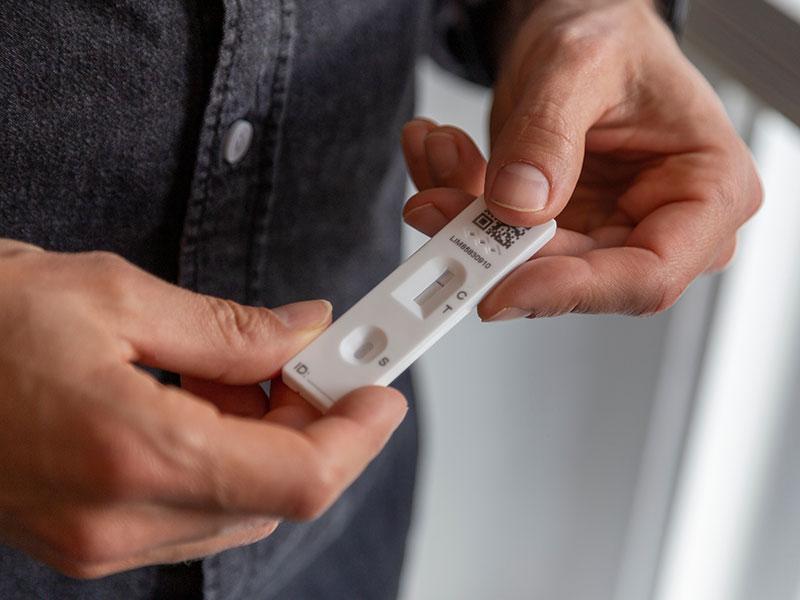The south west continues to have the highest regional rates in England, but our numbers are now coming down.
NHS leaders are asking all of us to help with the growing pressures on the health and social care system by looking after our own health, getting our Covid and flu vaccinations, and choosing the right health service if we do need help.
Getting your Covid vaccines or booster jabs, along with your flu vaccine, will help protect you, people around you, and the NHS.
Latest vaccination eligibility
Vaccinations have proven to be an extremely useful tool in the ongoing fight against Covid-19 so get yours when you’re eligible.
Anyone aged:
- 17¾ and over – can get a minimum two-dose vaccination course, eight weeks apart.
- between 16 and 17¾ – can now get their second vaccination. This age group must wait 12 weeks between doses, rather than eight.
- 12 to 15 – can get a single dose vaccination.
- 40 and over – if you’re over 40 you can now get a booster jab six months after your second dose. You do not need to wait for the invitation from the NHS. Visit grabajab.net to find your nearest clinic.
Front line health care workers and anyone with health issues which make them more likely to get very poorly if they catch Covid-19 can also get a booster dose.
Get your vaccination by:
- Going to a walk-in clinic. Find your nearest North Somerset session at grabajab.net or visit the NHS website for other areas
- Book an appointment using the NHS Covid vaccination National Booking System
- Get an invitation from your GP
- Children aged 12 to 15 can go to their school’s vaccination clinic.
Help with lateral flow tests
Do you need help taking a Covid-19 lateral flow test?
These tests are for anyone who does not have symptoms of coronavirus.
They are usually done at home and might be taken before attending events or meeting up with friends or loved ones.
However, they can be tricky for those with poor fine motor skills, such as arthritis, dyspraxia or other disabilities.
Our rapid testing service can offer assisted testing, where a member of staff will process the results.
You’ll still need to take your own nose swab, but the team will do the rest for you.
They can also help with the technical aspects of registering for a test if you haven’t done it before.
The assisted service is available in the mobile testing vans which call regularly at Clevedon, Nailsea, Portishead and Weston, as well as villages throughout the area.
Everyone is encouraged to do regular rapid Covid-19 tests as some people do not experience symptoms if they catch the disease.
Anyone with symptoms of Covid-19 - a new continuous cough, high temperature, or a change to their sense of taste or smell - must not use this service.
Instead, stay home and organise a PCR test on the gov.uk website or by calling 119.
Local health care services on highest level of alert
Hospitals, GPs, community and mental health services, as well as our own social care teams, are all under immense pressure.
Workforce challenges, increased demand, the ongoing impact of Covid-19, and a growing backlog of planned clinical care and surgery are making this the most challenging period our system has ever experienced.
As a result, exceptional steps are now being taken to manage demand.
Our local health system - called Healthier Together - covers Bristol and South Gloucestershire as well as North Somerset.
It has moved into its highest level of alert. This means people now being admitted to hospital are being asked to plan for their discharge with ward staff straight away.
Efforts are being made to move people on as soon as they are medically well enough to leave hospital – even if that’s to an appropriate place further from their home.
This is being done so that hospital beds are available for those who are most acutely unwell.
Family and friends are also being asked to help with a timely discharge of their loved ones, while voluntary and community sector partners such as the Red Cross and Home from Hospital Service are supporting more people to return home or onto another service in the community.
You can help by staying away from busy emergency departments and minor injuries units unless it’s absolutely necessary:
• think 111 first for all urgent but non-life-threatening injuries or illnesses, rather than visiting busy emergency departments and minor injuries units
• help look out for your community by checking-in on loved ones and neighbours who might need extra support, especially as winter approaches
• protect yourself and get vaccinated against Covid-19 and flu. Find all the details you need at www.grabajab.net
• pharmacies can give treatment advice about a range of common conditions and minor injuries, like aches and pains, sore throat, coughs, colds and skin rashes. Find your local pharmacist online.

